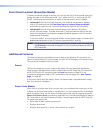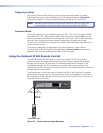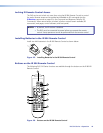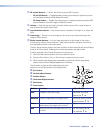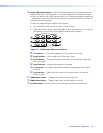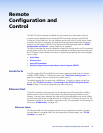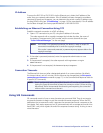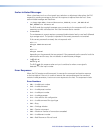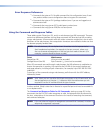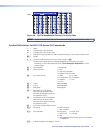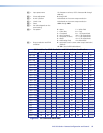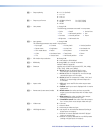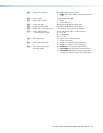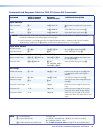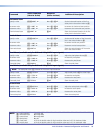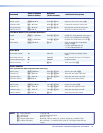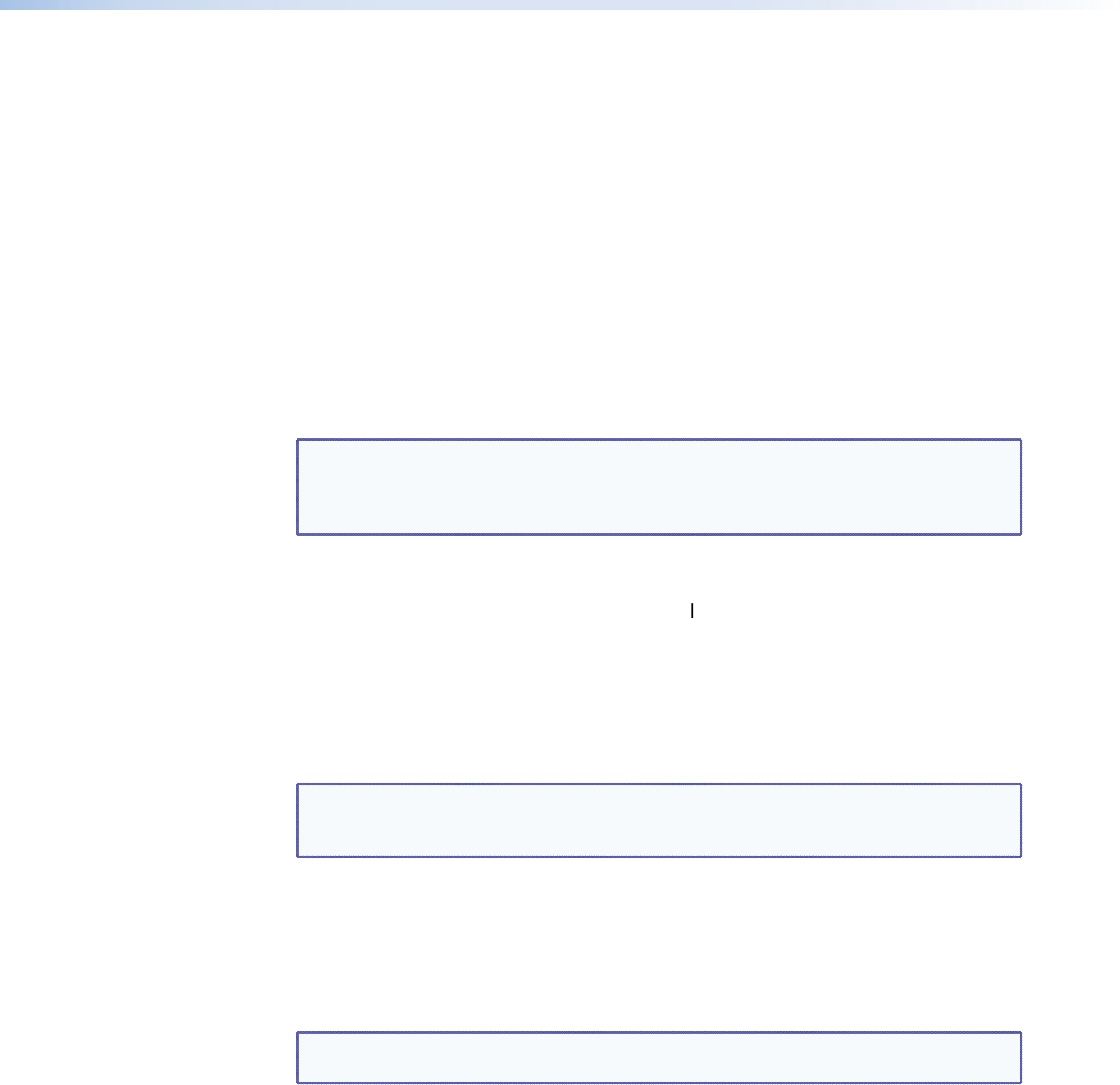
DVS 510 Series • Remote Configuration and Control 50
Error Response References
14
= Commands that give an E14 (invalid command for this configuration) error if sent
to a product whose current configuration does not support the command
24
= Commands that give an E24 (privilege violation) error if you are not logged on at
administrator level
27
= Commands that may give an E27 (invalid event number) error
28
= Commands that may give an E28 (file not found) error
Using the Command and Response Tables
These tables contain Telnet (port 23), serial, or web browser (port 80) commands. There are
some minor differences between issuing these commands via Telnet and via URL encoding
using a web browser. All commands work with either connection method but, due to some
limitations of the web browser, the encapsulation characters are modified to make sure that
the browser properly handles them.
NOTE: For web browsers, all non-alphanumeric characters must be represented as
their hexadecimal equivalent. An example is the %xx command, where xx is
the two-character representation of the hex byte that needs to be sent. (For
example, a comma would be shown as %2C.)
Telnet Web browser
Escape (Hex 1B) W (must not be encoded)
Carriage Return (Hex 0D) Pipe Character ( ) (must not be encoded)
When SIS commands are used through a web browser, the URL reference is used below to
shorten the examples. In practice, this would be the full URL of the control interface and
web page reference, including all path information; for example, http://192.168.254.254/
index.html
To send any of the commands using a web browser, prefix them with the full IP address,
followed by ?cmd=.
NOTE: With Telnet you can use either the Escape commands or the W commands, and
the carriage return or the pipe ( | ) character. With the web browser you are
required to use the W commands and the pipe character.
In either method, {Data} is data that is directed to a specified port and must be encoded if it
is non-alphanumeric.
The Command and Response Tables for SIS Commands, starting on page 55, list the
commands that the DVS 510 scaler recognizes as valid, the responses that are returned to
the host, a description of the command function or the results of executing the command,
and command examples.
NOTE: If the unit does not support or recognize a command that is entered, no action is
taken and no response is returned.



